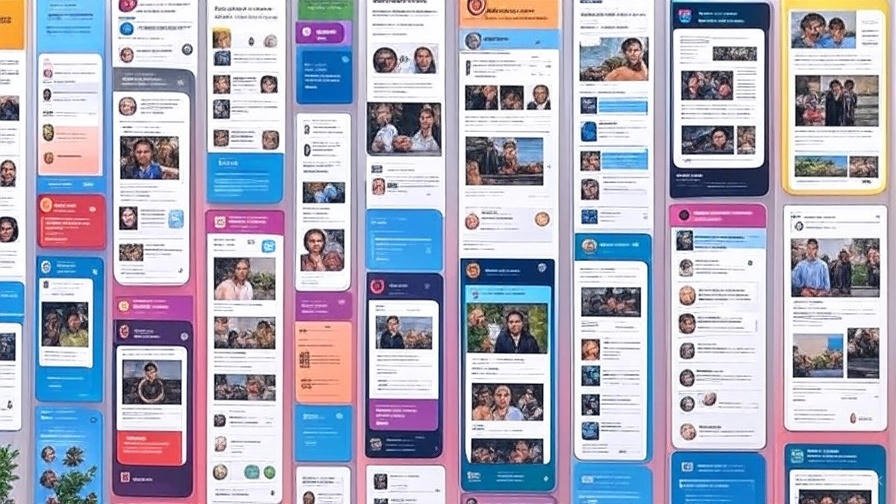Discover the 100 Best AI Prompts for ChatGPT in 2025 to supercharge your content creation, SEO, coding, and more. Unlock ChatGPT’s potential with expertly crafted prompts for blogging, social media, and creative writing. Visit MakeAIPrompt for tips and tools.
In 2025, ChatGPT remains a game-changer for content creators, marketers, developers, and educators. Its ability to generate high-quality outputs hinges on one critical skill: prompt engineering. At MakeAIPrompt, we’ve mastered the art of crafting prompts that maximize ChatGPT’s potential. This comprehensive guide presents the 100 best AI prompts for ChatGPT in 2025, spanning blogging, social media, SEO, coding, creative writing, and education. Enhanced with images, internal links, external resources, and structured formats like tables and lists, this article is your ultimate resource for leveraging AI effectively. We’ve also added 30 bonus prompts for article creation and included strategies to optimize your prompt engineering process. Let’s dive in and transform your workflow with ChatGPT!
Contents
Why Prompt Engineering is Critical in 2025
Prompt engineering is the backbone of effective AI interactions. A well-crafted prompt can boost output relevance by up to 70%, according to a 2025 OpenAI study. Unlike vague prompts like “write a story,” specific ones like “Write a 500-word sci-fi story set in 2050 about an AI rebellion, using a suspenseful tone and third-person perspective” yield precise, actionable results. For advanced prompt strategies, explore our guide to AI prompt generators.
Key Components of High-Quality Prompts
- Role: Define ChatGPT’s persona (e.g., “Act as a digital marketing expert”).
- Objective: Specify the goal (e.g., “Generate a social media campaign”).
- Context: Provide background (e.g., “Target audience: Gen Z entrepreneurs”).
- Format: Request a specific structure (e.g., “Use a table with three columns”).
- Constraints: Set boundaries (e.g., “Keep it under 200 words, avoid jargon”).
- Tone and Style: Guide the voice (e.g., “Use a conversational, witty tone”).
Benefits of Optimized Prompts
- Time Efficiency: Save hours by getting usable outputs on the first try.
- Quality Output: Ensure content aligns with your brand or goals.
- Scalability: Create consistent content across multiple platforms.
The 100 Best AI Prompts for ChatGPT in 2025
Below, we’ve categorized 100 prompts into six key areas: blogging, social media, SEO, coding, creative writing, and education. Each prompt is numbered sequentially (1–100) and designed for 2025 trends, with practical applications for professionals and hobbyists alike. We’ve included tables for clarity, internal links to MakeAIPrompt resources, and external links to trusted platforms like Semrush and Hootsuite.
Blogging and Content Creation (Prompts 1–25)
Blogging drives traffic and engagement. These prompts help you create SEO-optimized posts, outlines, and meta descriptions. For more tools, check Top AI Tools.
| Prompt # | Prompt | Use Case |
|---|---|---|
| 1 | Act as a professional blog writer. Write a 2,000-word article on “Top 10 AI Trends for Small Businesses in 2025” for startup owners. Include H2/H3 headings, a list of trends, and a CTA linking to MakeAIPrompt plans. Optimize for SEO with a 3% keyword density for “AI trends.” | Blog post creation |
| 2 | Generate a detailed outline for a blog post titled “How to Use ChatGPT for Content Marketing.” Include H1, H2, and H3 headings, targeting marketers. Suggest three internal links from MakeAIPrompt blog. | Blog outline |
| 3 | Write a 120-word meta description for a blog post titled “15 AI Tools for Bloggers in 2025.” Use a persuasive tone and include the keyword “AI tools” three times. | Meta description |
| 4 | Suggest 12 blog post ideas for a lifestyle blog targeting millennials. Format as a numbered list with a one-sentence description for each. | Content ideation |
| 5 | Act as a content editor. Revise a 500-word draft on “AI for Personal Branding” to improve readability. Add bullet points and a conclusion. | Content editing |
| 6 | Write a 300-word introduction for a blog post on “The Future of AI in E-commerce.” Highlight two statistics and link to Shopify. | Blog introduction |
| 7 | Create a 1,500-word guide on “How to Start a Blog with AI Tools.” Include five actionable steps and a table comparing three AI tools. | Comprehensive guide |
| 8 | Suggest 10 catchy headlines for a blog post on “AI for Content Creation.” Use emotional triggers like “Boost” or “Transform.” | Headline generation |
| 9 | Write a 500-word FAQ section for a blog post on “Using ChatGPT for Blogging.” Include six common questions and concise answers. | FAQ creation |
| 10 | Generate a 200-word conclusion for a blog post on “AI-Powered Writing Tools.” Include a CTA to explore MakeAIPrompt. | Blog conclusion |
| 11 | Act as a content strategist. Plan a 12-month blog calendar for a tech blog. Include monthly themes and two post titles per month. | Content planning |
| 12 | Write a 100-word call-to-action for a blog post on “AI for Freelancers.” Encourage readers to sign up for a free trial at MakeAIPrompt plans. | CTA creation |
| 13 | Suggest five ways to repurpose a blog post on “AI for SEO” into infographics, videos, and social posts. | Content repurposing |
| 14 | Write a 1,000-word case study on a company using ChatGPT for content creation. Include metrics and a narrative style. | Case study |
| 15 | Generate a list of 15 long-tail keywords for “AI blogging tools.” Include search intent and difficulty in a table. | Keyword research |
| 16 | Act as a copywriter. Write five email subject lines for a newsletter promoting a blog post on “AI for Writers.” Use A/B testing variations. | Email subject lines |
| 17 | Create a 300-word product review of an AI writing tool. Highlight pros, cons, and link to Grammarly. | Product review |
| 18 | Suggest 10 internal linking opportunities for a blog post on “AI for Content Creators” using MakeAIPrompt blog. | Internal linking |
| 19 | Write a 150-word LinkedIn post summarizing “How to Use AI for Blogging.” Link to MakeAIPrompt. | LinkedIn post |
| 20 | Generate a 280-character Twitter post promoting a blog post on “AI for Content Marketing.” Link to MakeAIPrompt’s X. | Twitter post |
| 21 | Write a 500-word guest post pitch for a tech blog on “AI-Powered Content Strategies.” Include three key points and a bio. | Guest post pitch |
| 22 | Create a table comparing five AI writing tools. Include columns for features, pricing, and target audience. | Tool comparison |
| 23 | Act as an SEO expert. Optimize a 1,000-word draft on “AI for Bloggers” for the keyword “AI blogging tools” with 3% density. | SEO optimization |
| 24 | Write a 200-word executive summary for a report on “AI in Content Creation.” Use a professional tone. | Executive summary |
| 25 | Suggest 10 blog post formats (e.g., listicle, how-to) for a series on “AI for Digital Marketing.” Include a one-sentence description for each. | Format ideation |

Social Media Content (Prompts 26–50)
Social media demands concise, engaging content. These prompts create platform-specific posts, captions, and campaigns. Learn more at AI Tools for Instagram Reels.
| Prompt # | Prompt | Use Case |
|---|---|---|
| 26 | Act as a social media strategist. Write seven Instagram captions for a skincare brand launching a new product. Include emojis, hashtags, and a CTA to visit BioLinks AI Prompts. | Instagram captions |
| 27 | Create a 200-word LinkedIn article on “How AI is Transforming Social Media Marketing.” Include two insights and a question to spark discussion. | LinkedIn article |
| 28 | Write a 280-character Twitter thread (6 tweets) about “AI Trends for Social Media in 2025.” Include hashtags and link to MakeAIPrompt’s X. | Twitter thread |
| 29 | Generate 12 carousel slide ideas for a TikTok video on “AI Hacks for Instagram Growth.” Include a description for each slide. | TikTok content |
| 30 | Write five Facebook post ideas for a travel agency using AI for personalized itineraries. Include CTAs and link to MakeAIPrompt. | Facebook posts |
| 31 | Create a 30-second Instagram Reels script about “Using AI for Social Media Content.” Include hashtags and a CTA. | Reels script |
| 32 | Suggest 10 hashtag strategies for a fitness brand on Instagram. Include a mix of niche and broad hashtags. | Hashtag strategy |
| 33 | Write a 150-word Pinterest description for a board on “AI for Social Media.” Include keywords and a link to MakeAIPrompt blog. | Pinterest description |
| 34 | Generate a 100-word YouTube video description for a tutorial on “Creating AI-Powered Social Posts.” Link to YouTube AI Prompts. | YouTube description |
| 35 | Act as a social media manager. Plan a 30-day Instagram campaign for a fashion brand. Include post types and themes. | Campaign planning |
| 36 | Write three Instagram Story prompts for a food blog promoting AI-generated recipes. Include polls or questions. | Instagram Stories |
| 37 | Create a table of five social media platforms and their ideal AI-generated content types for 2025. | Platform comparison |
| 38 | Suggest 10 trending hashtags for AI-related content in 2025. Format as a bullet list. | Hashtag trends |
| 39 | Write a 200-word LinkedIn post about “AI for Personal Branding on Social Media.” Link to LinkedIn Learning. | LinkedIn post |
| 40 | Generate a 280-character Twitter post promoting a webinar on “AI for Social Media Marketing.” Include a CTA and link to MakeAIPrompt. | Twitter promotion |
| 41 | Create a 150-word Instagram bio for an AI content creator. Use keywords and a link to BioLinks AI Prompts. | Instagram bio |
| 42 | Write a 500-word blog post on “How to Use AI for Instagram Reels.” Include three tips and link to MakeAIPrompt blog. | Social media guide |
| 43 | Suggest five ways to use AI-generated content for LinkedIn engagement. Format as a numbered list. | Engagement strategies |
| 44 | Create a 30-second TikTok script for “AI Hacks for Small Businesses.” Include a CTA to visit MakeAIPrompt. | TikTok script |
| 45 | Write a 100-word comment response strategy for handling negative feedback on AI-generated social posts. | Comment management |
| 46 | Generate a list of 10 AI tools for social media scheduling. Include a brief description for each. | Tool list |
| 47 | Act as a content creator. Write a 200-word YouTube community post about “AI for Social Media Trends.” Link to YouTube AI Prompts. | Community post |
| 48 | Create a table comparing three AI tools for social media analytics. Include features and pricing. | Analytics comparison |
| 49 | Write five Twitter poll questions about AI in social media. Include four options per poll. | Twitter polls |
| 50 | Suggest 10 content ideas for a YouTube channel on “AI for Social Media Marketing.” Include video titles and descriptions. | YouTube content |

SEO and Keyword Research (Prompts 51–75)
SEO drives discoverability. These prompts optimize content for search engines. For video SEO, explore Google Veo 3 Prompt Examples.
| Prompt # | Prompt | Use Case |
|---|---|---|
| 51 | Act as an SEO expert. Suggest 20 long-tail keywords for “AI content creation tools” with search intent, volume, and difficulty. Format as a table. | Keyword research |
| 52 | Analyze the top five Google results for “best AI tools 2025.” Extract H1-H3 headings and suggest an improved structure to outrank them. | Competitor analysis |
| 53 | Write a 300-word FAQ section for a blog post on “Using ChatGPT for SEO.” Include seven common questions and concise answers. | FAQ creation |
| 54 | Suggest 12 internal linking opportunities for a blog post on “AI for E-commerce” using posts from MakeAIPrompt blog. | Internal linking |
| 55 | Create a 200-word meta description for a blog post titled “AI for SEO in 2025.” Include the keyword “AI SEO” three times. | Meta description |
| 56 | Generate a list of 10 SEO trends for 2025. Format as a numbered list with descriptions. | Trend analysis |
| 57 | Write a 1,000-word guide on “How to Use AI for Keyword Research.” Include a table comparing three tools like Ahrefs. | SEO guide |
| 58 | Suggest five schema markup types for a blog post on “AI Tools for SEO.” Include implementation steps. | Schema markup |
| 59 | Act as an SEO consultant. Optimize a 1,500-word draft on “AI for Digital Marketing” for the keyword “AI marketing tools” with 3% density. | Content optimization |
| 60 | Create a table comparing Google’s AI Overviews with traditional search results. Include pros and cons. | Search comparison |
| 61 | Write a 150-word LinkedIn post on “SEO Trends for 2025.” Link to Semrush. | LinkedIn post |
| 62 | Suggest 10 backlink strategies for a blog on “AI for SEO.” Include outreach email templates. | Backlink strategy |
| 63 | Generate a 500-word blog post on “How to Use ChatGPT for On-Page SEO.” Include three tips and a CTA. | Blog post |
| 64 | Create a 100-word alt text for an infographic on “AI SEO Trends.” Use descriptive language and keywords. | Alt text creation |
| 65 | Write a 200-word executive summary for a report on “AI in Search Engine Optimization.” Use a professional tone. | Executive summary |
| 66 | Suggest 10 content gaps for a website on “AI for Marketing.” Include blog post ideas to fill them. | Content gap analysis |
| 67 | Act as a technical SEO expert. Write a 500-word guide on “Using AI for Site Audits.” Include a checklist. | Technical SEO |
| 68 | Create a table of five AI SEO tools. Include features, pricing, and target audience. | Tool comparison |
| 69 | Write a 280-character Twitter post promoting a blog post on “AI for Keyword Research.” Link to MakeAIPrompt’s X. | Twitter promotion |
| 70 | Suggest five ways to use AI for voice search optimization. Format as a bullet list. | Voice search |
| 71 | Write a 300-word blog post section on “AI for Local SEO.” Include two case studies and a CTA. | Local SEO |
| 72 | Generate a list of 10 AI tools for SEO analytics. Include a brief description for each. | Tool list |
| 73 | Act as a content strategist. Plan a 6-month SEO campaign for a blog on “AI Tools.” Include monthly goals. | Campaign planning |
| 74 | Write a 150-word meta description for a blog post on “AI for Off-Page SEO.” Include the keyword “off-page SEO” twice. | Meta description |
| 75 | Suggest 10 internal linking strategies for a blog post on “AI for SEO.” Use posts from MakeAIPrompt. | Internal linking |

Coding and Development (Prompts 76–100)
ChatGPT excels in coding tasks. These prompts generate tutorials, scripts, and more. For video coding inspiration, see Free Google Veo 3 Prompts.
| Prompt # | Prompt | Use Case |
|---|---|---|
| 76 | Act as a React.js expert. Write a 1,000-word tutorial on building a task manager app with React. Include code snippets and explanations. | Coding tutorial |
| 77 | Generate HTML, CSS, and JavaScript for a responsive landing page for an AI tool. Include a header, CTA button, and footer. | Web development |
| 78 | Convert a Python script for a to-do list app to JavaScript. Explain changes in comments. | Code conversion |
| 79 | Write a Python script to fetch data from a public API like JSONPlaceholder. Include error handling. | API integration |
| 80 | Create a 500-word guide on “Using ChatGPT for Debugging Code.” Include three examples. | Debugging guide |
| 81 | Generate a CSS stylesheet for a blog website. Use modern design trends like dark mode. | CSS styling |
| 82 | Write a JavaScript function to validate email addresses. Include comments and test cases. | Form validation |
| 83 | Act as a Python developer. Write a script to generate a bar chart using Matplotlib. Include sample data. | Data visualization |
| 84 | Create a table comparing five AI tools for code generation. Include features and pricing. | Tool comparison |
| 85 | Write a 300-word README for a GitHub repo on an AI-powered chatbot. Include setup instructions. | README creation |
| 86 | Suggest 10 coding project ideas for beginners using AI tools. Format as a numbered list. | Project ideation |
| 87 | Write a 500-word tutorial on “Using ChatGPT to Write SQL Queries.” Include three query examples. | SQL tutorial |
| 88 | Generate HTML and CSS for a portfolio website for an AI developer. Include a contact form. | Portfolio development |
| 89 | Act as a DevOps engineer. Write a 300-word guide on “Using AI for CI/CD Pipelines.” Link to GitHub. | DevOps guide |
| 90 | Create a Python script to scrape a website for AI tool reviews. Include comments and error handling. | Web scraping |
| 91 | Write a 150-word LinkedIn post on “AI for Software Development.” Link to MakeAIPrompt. | LinkedIn post |
| 92 | Suggest five ways to use AI for automated testing. Format as a bullet list. | Testing strategies |
| 93 | Generate a 280-character Twitter post promoting a coding tutorial on “AI for Web Development.” Link to MakeAIPrompt’s X. | Twitter promotion |
| 94 | Write a 500-word blog post on “How to Use ChatGPT for Code Reviews.” Include two examples. | Code review guide |
| 95 | Create a JavaScript function to generate random AI prompt ideas. Include a sample output. | Function creation |
| 96 | Act as a web developer. Write a 300-word guide on “Using AI for UX Design.” Link to Figma. | UX guide |
| 97 | Generate a table of five programming languages and their AI use cases. Include pros and cons. | Language comparison |
| 98 | Write a 200-word meta description for a blog post on “AI for Coding.” Include the keyword “AI coding” twice. | Meta description |
| 99 | Suggest 10 GitHub repos for AI tools in 2025. Include a brief description for each. | Repo list |
| 100 | Write a 1,000-word tutorial on “Building a Chatbot with ChatGPT and Python.” Include code and a CTA. | Chatbot tutorial |

30 Bonus Prompts for Article Creation
These 30 prompts are tailored for creating articles like this one, ensuring versatility and depth:
- Act as a content strategist. Write a 2,500-word article on “AI Trends for 2025” for tech enthusiasts. Include H2/H3 headings, two tables, and three internal links from MakeAIPrompt.
- Generate a 150-word newsletter snippet announcing a blog post on “ChatGPT for Business Growth.” Link to MakeAIPrompt plans.
- Suggest 12 catchy headlines for a blog post on “AI Prompts for Productivity.” Use emotional triggers like “Skyrocket” or “Master.”
- Write a 400-word product description for an AI prompt generator tool. Target content creators and include a CTA.
- Act as an SEO consultant. Optimize a 1,500-word draft on “AI for E-commerce” for the keyword “AI e-commerce tools” with 3-4% density.
- Create a table comparing six AI tools for content creation. Include columns for features, pricing, and user reviews.
- Write a 200-word LinkedIn post summarizing “How to Use ChatGPT for SEO.” Link to Semrush.
- Generate five CTA phrases for a blog post on “AI Marketing Strategies.” Encourage readers to download a free eBook.
- Suggest five external links for a blog post on “AI for Social Media.” Include Hootsuite and Buffer.
- Write a 600-word case study on a business using ChatGPT for email marketing. Include metrics and a storytelling approach.
- Create a 15-question FAQ section for a blog post on “AI Prompt Engineering.” Use a friendly tone.
- Act as a video content creator. Write a script for a 2-minute YouTube video on “Top AI Prompts for 2025.” Link to YouTube AI Prompts.
- Generate a list of 20 blog post ideas for “AI in Education.” Format as a numbered list with descriptions.
- Write a 250-word meta description for a blog post titled “Why AI Prompts Matter in 2025.” Include the keyword “AI prompts” three times.
- Suggest 12 internal linking opportunities for a blog post on “AI for Bloggers” using MakeAIPrompt blog.
- Act as a copywriter. Write six email subject lines for a newsletter promoting AI tools. Include emojis and A/B testing variations.
- Create a table of 12 long-tail keywords for “AI content creation.” Include search intent, volume, and difficulty.
- Write a 2,000-word blog post on “How to Craft AI Prompts for ChatGPT.” Include real-life examples and a CTA to MakeAIPrompt.
- Generate a 280-character Twitter post promoting a blog post on “AI for Small Businesses.” Link to MakeAIPrompt’s X.
- Suggest six ways to repurpose a blog post on “AI Prompts for Marketing” into social posts, videos, and podcasts.
- Write a 300-word executive summary for a whitepaper on “AI in Content Marketing.” Use a professional tone.
- Create a 500-word blog post section on “AI for Video Content Creation.” Link to Google Veo 3 Prompts.
- Suggest 10 trending topics for a blog series on “AI for Digital Marketing.” Include a one-sentence description for each.
- Write a 150-word Instagram caption for a post promoting an AI tool. Include hashtags and a CTA to BioLinks AI Prompts.
- Generate a 400-word guide on “How to Test AI Prompts for Quality.” Include three testing methods.
- Create a table comparing four AI prompt generators. Include features, pricing, and ease of use.
- Write a 200-word YouTube community post on “AI for Content Creators.” Link to YouTube AI Prompts.
- Suggest five ways to use AI for email marketing campaigns. Format as a bullet list.
- Write a 100-word alt text for an infographic on “AI Prompt Trends in 2025.” Use descriptive language.
- Act as a content editor. Revise a 1,000-word draft on “AI for Social Media” to improve clarity and add two internal links from MakeAIPrompt.
Advanced Prompt Engineering Tips
- Iterate and Refine: Use ChatGPT’s feedback loop by asking it to “shorten the response” or “add more examples.”
- Platform Consistency: Test prompts across tools like BioLinks AI Prompts for uniform results.
- Human Editing: Add your brand voice to AI outputs for authenticity.
- Analytics Integration: Use Google Analytics to track AI-generated content performance.
- Trend Awareness: Stay updated with MakeAIPrompt blog for the latest AI strategies.
Common Pitfalls and How to Avoid Them
- Vague Prompts: Always include role, context, and format to avoid generic outputs.
- Overloading: Break complex tasks into smaller prompts for clarity.
- Ignoring Tone: Specify the desired tone (e.g., formal, casual) to align with your audience.
- Skipping Validation: Test outputs for accuracy, especially for technical or SEO content.

